Suan Dusit University recognizes that “buildings and physical spaces” are central to creating a safe, environmentally friendly, and sustainable learning environment that reflects long-term urban sustainability. In line with its strategic direction, the University has established institution-wide standards for the planning and development of new buildings and learning spaces, emphasizing energy efficiency, environmentally conscious materials, and integrated environmental management within buildings.
This approach is grounded in the Brownfield-First Development Model, which prioritizes the renovation and enhancement of existing spaces before expanding into new land, in order to preserve the University’s green areas and minimize environmental impacts from new construction. All planning and construction activities in 2024 were conducted in full compliance with governmental regulations and building standards, with transparency ensured through the e-Bidding system and public disclosure via the University’s official website:
1. Ministerial Regulation of the Ministry of Energy (2021) on the standards for energy-efficient building design, which provides the framework for designing buildings that conserve energy through the use of natural lighting, appropriate ventilation, and materials that reduce heat loss. https://download.asa.or.th/03media/04law/eca/ma64.pdf
2. Ministerial Regulation No. 69 (2021) issued under the Building Control Act B.E. 2522 (1979), which sets regulations on building structure, stability, fire escape routes, ventilation, and safety inspections for public buildings.
3. Occupational Safety, Health, and Working Environment Act B.E. 2554 (2011), which requires all educational institutions to establish an Occupational Safety Committee (KPO) responsible for overseeing safety measures in construction sites and academic buildings. https://www.tosh.or.th/images/file/2016/osh-act.b.e.2554.pdf
The University has begun applying these laws as reference criteria in the TOR and central e-Bidding system to ensure that contractors comply with required standards—particularly in relation to energy-efficient materials, low-carbon construction materials, waste management, and building user safety. In addition, all documentation is publicly accessible through the University’s website, including the e-Bidding system, the Budget Plan 2024, and related activity reports in 2024. This demonstrates the University’s ongoing commitment to transparent, systematic, and sustainability-oriented construction management.
Section 1: Building Inspection and Certification in Accordance with the Law
The Department of Public Works and Town & Country Planning (Rama VI Office) conducted inspections of building conditions and safety-related equipment in the Chalermphrakiat 50th Anniversary Maha Vajiralongkorn Building, classified as a special large-scale building, and the Science Center Residential Building, classified as a condominium or residential complex under the Building Control Act. Personnel from the Office of Science Building Services and the Office of Buildings and Facilities participated in the inspection process.
This inspection is part of the monitoring and evaluation process for structural integrity, electrical systems, ventilation, and user safety in accordance with legal standards. It serves as a key mechanism to ensure that University buildings are maintained to public safety standards and are safe for actual use. https://www.dusit.ac.th/home/2024/1203137.html
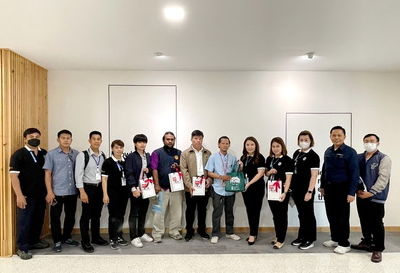
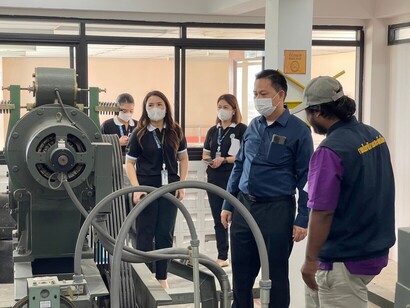
Section 2: Energy Management Inspection and Certification
On 9 March 2024, Suan Dusit University held a meeting for the Annual Energy Management Inspection and Certification for 2023, chaired by the Director of the Office of Buildings and Facilities. The inspection was conducted by CK Energy Plus Co., Ltd., a licensed entity under Section 48/1 of the Energy Conservation Promotion Act B.E. 2535 (1992) and its amendment in B.E. 2550 (2007), in accordance with the requirements of the Department of Alternative Energy Development and Efficiency (DEDE).
The inspection evaluated the University’s energy management system to ensure compliance with standards set by the Ministry of Energy, and confirmed that the University maintains an effective monitoring and certification system for energy use.
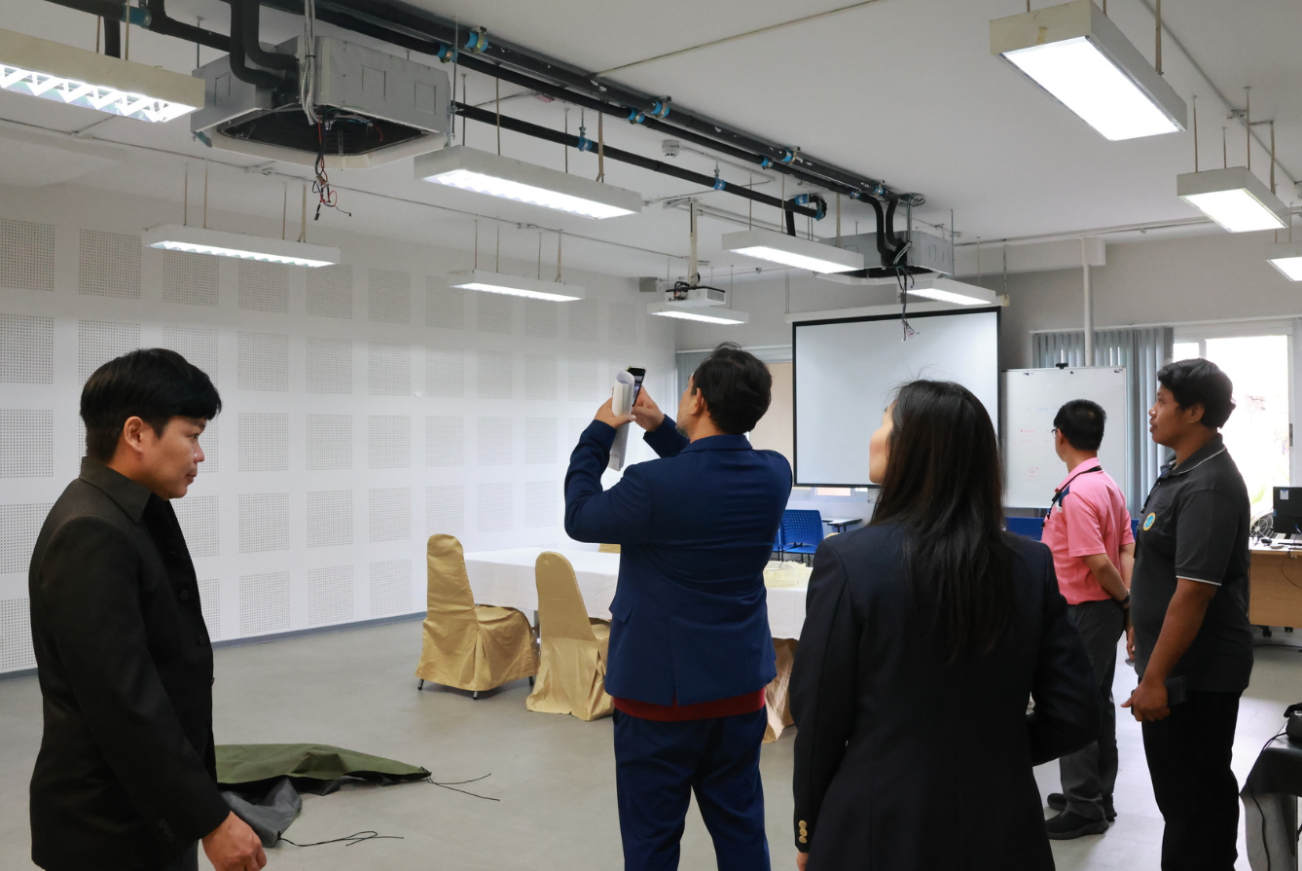
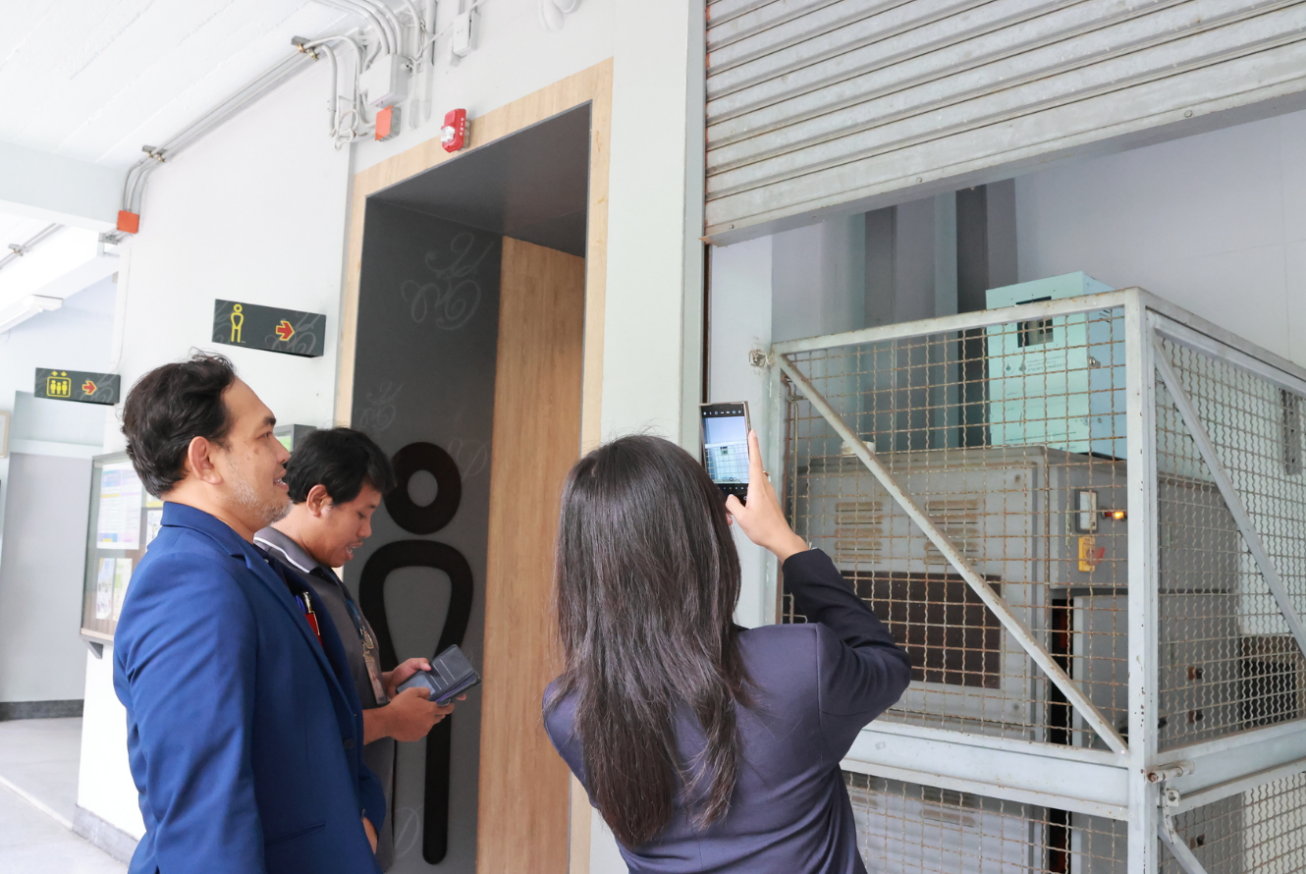
Section 3: Policy-Level Energy Planning and Conservation Measures
A meeting of the Suan Dusit University Promotion Committee (Meeting No. 2(19)/2024) included a key agenda item on the “Draft Suan Dusit University Energy Conservation Plan”, which outlines the strategic direction for the University’s future energy conservation efforts. In addition, the Suan Dusit University Executive Committee (Meeting No. 2(36)/2024), chaired by the President, considered a major sustainability initiative titled “Service Project for the Installation and Maintenance of Energy-Saving Equipment in Renewable or Alternative Energy Power Systems.” The project is conducted in collaboration with the Ministry of Higher Education, Science, Research and Innovation (MHESI) and aims to enhance the energy efficiency of University buildings and promote the adoption of clean energy within Suan Dusit University’s public utility systems.
Section 4: Management of Safety, Occupational Health, and Working Environment
Suan Dusit University conducts regular meetings of the Committee on Safety, Occupational Health, and Working Environment, such as Meeting No. 1(38)/2024, which included key agenda items on the Safety, Occupational Health, and Environmental Action Plan, review of energy conservation measures, and the training program “SDU: Actions toward the Sustainable Development Goals and Transitioning to a Low-Carbon University.”
During Meeting No. 5(42)/2024, the Committee reviewed energy conservation potential assessments and environmental quality monitoring under the Green & Clean University policy. Reports from both meetings are continuously documented and publicly disclosed through the University website.During Meeting No. 5(42)/2024, the Committee reviewed energy conservation potential assessments and environmental quality monitoring under the Green & Clean University policy. Reports from both meetings are continuously documented and publicly disclosed through the University website.
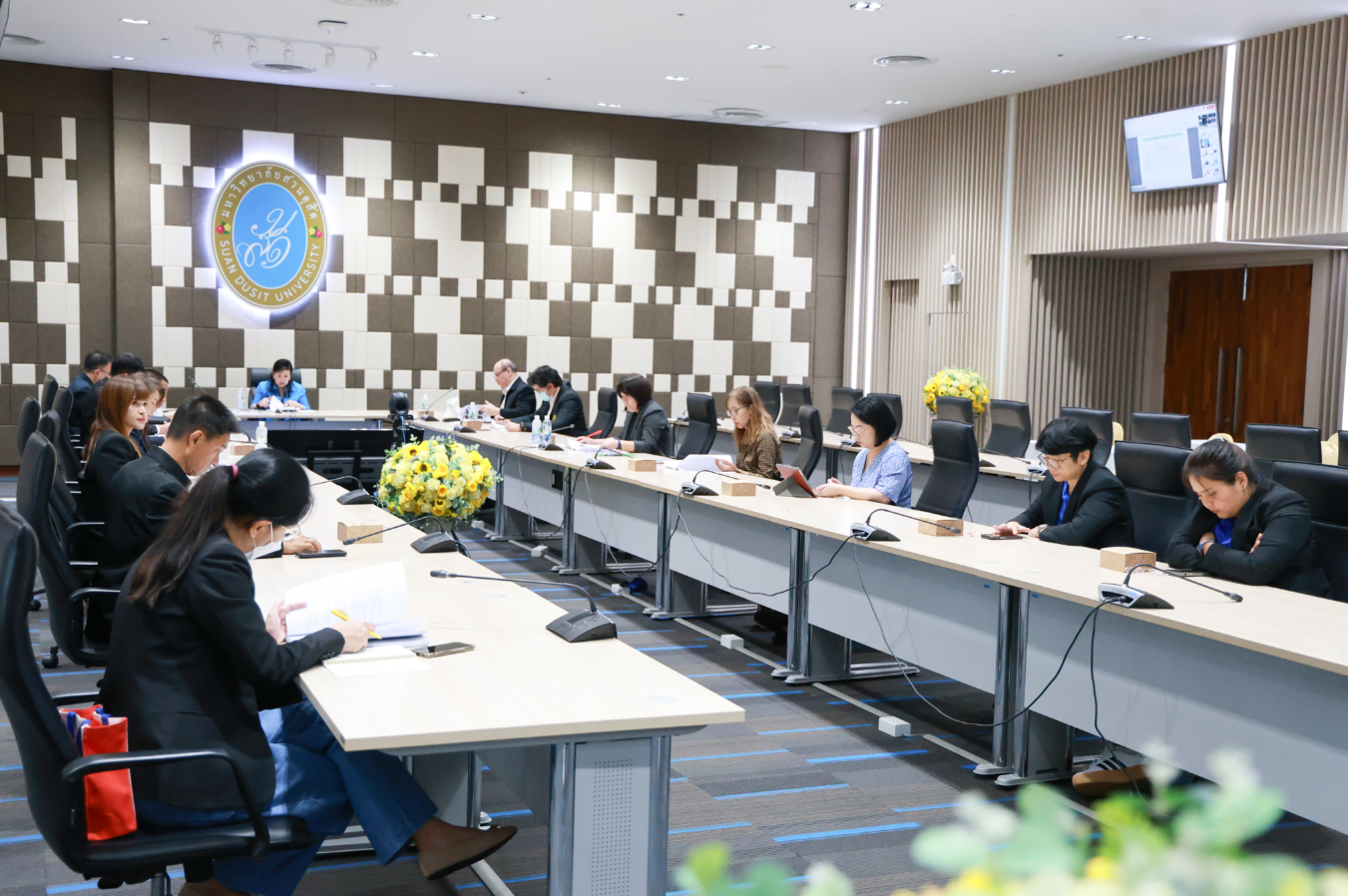
Section 5: Technology Development and Collaboration with the Energy Sector
Suan Dusit University, represented by the Director of the Office of Buildings and Facilities and the Director of the Legal Office, held a meeting with the Metropolitan Electricity Authority (MEA) to discuss the implementation details of the project for installing and maintaining energy-saving equipment in renewable and alternative energy power systems, as well as to establish safety measures and operational guidelines for the project.
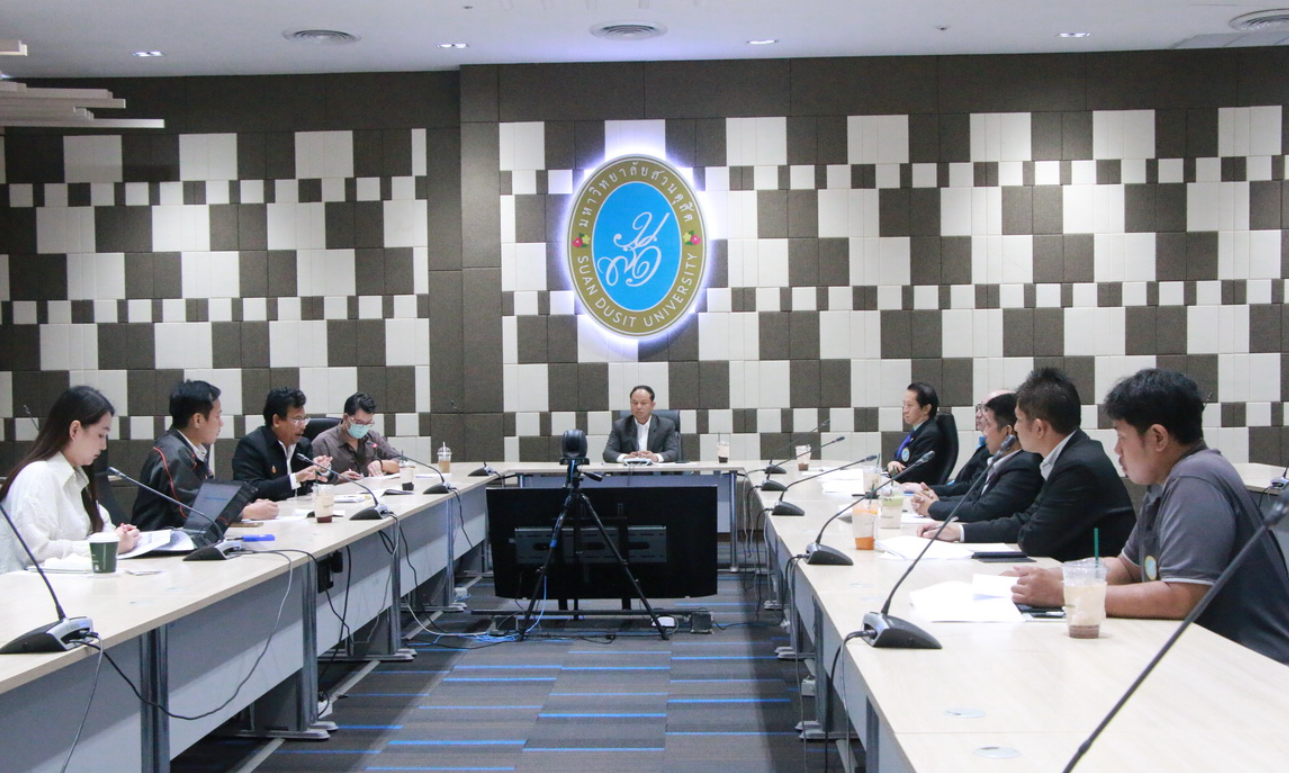
Section 6: Procurement System for Environmentally Friendly Construction Materials to Promote Sustainable Buildings
Suan Dusit University conducts procurement for construction materials and building works through the public e-bidding system, with all information openly disclosed at https://supply.dusit.ac.th/. The University has begun requiring bidders to submit technical proposals that specify environmentally compliant materials, in order to support sustainable building practices in both renovation of existing facilities and the construction of new structures.
Examples from the 2024 procurement cycle include: Upgrading the air-conditioning and ventilation systems in Academic Building 12, and Renovation of the food science laboratory in the International Culinary Training Center. These projects replaced older air-conditioning units with high-efficiency models certified with Energy Efficiency Label No. 5, using environmentally friendly refrigerants. Procurement specifications further require that bidders be certified under: ISO 9001:2005 (Quality Management System), and ISO 14001:2015 (Environmental Management System), to ensure product reliability and compliance with sustainability standards, in accordance with the technical specifications defined by the University.
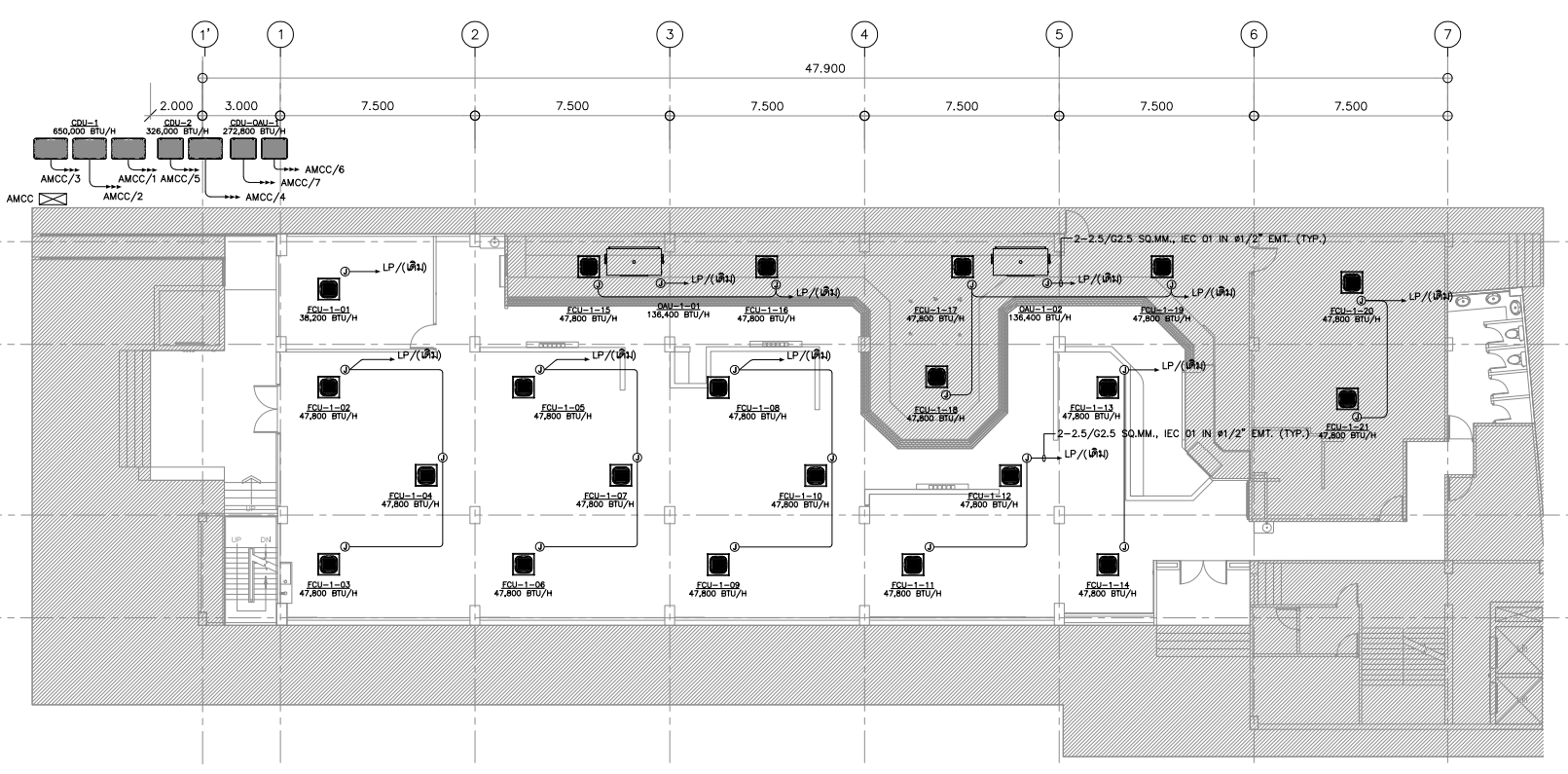
Renovation of the Early Childhood and Primary Education Building Complex, La-or Uthit Demonstration School, Dusit District, Bangkok (2 items). Improvement of the fire alarm system, fire protection system, and emergency exit routes for the La-or Uthit Demonstration School building complex, Dusit District, Bangkok. Renovation of the Early Childhood and Primary Education Laboratory, Dusit District, Bangkok
Strategic Conclusion
Based on the evidence from the 2024 fiscal year, Suan Dusit University has established a clear and comprehensive system for building planning, design, and development, covering energy efficiency, environmental sustainability, safety, and transparency. The University has adopted central development standards for new buildings, aligned with national laws and frameworks, including the Ministerial Regulation on Energy-Efficient Building Design B.E. 2564 (2021), Ministerial Regulation No. 69 (2021) under the Building Control Act, and the Occupational Safety, Health, and Working Environment Act B.E. 2554 (2011). These policies and standards have been integrated into the University’s TOR and e-Bidding system, serving as the operational framework for all construction and renovation projects.
Additionally, the University conducts external inspections and certifications related to building safety and energy management, in collaboration with agencies such as the Department of Public Works and Town & Country Planning and the Department of Alternative Energy Development and Efficiency, together with the Office of Buildings and Facilities and the Environmental Center of the University. Transparency is ensured through the public disclosure of all project documentation via University websites (supply.dusit.ac.th / planning.dusit.ac.th / dusit.ac.th/home).
In summary, Suan Dusit University has demonstrated that a sustainable building planning and development system is firmly in place as of 2024, across policy, management, and implementation levels. These standards serve as a foundation for SDG 11.4.9 (Building on Brownfield Sites), where sustainable development approaches are applied to the redevelopment of existing University spaces. Therefore, Suan Dusit University meets the criteria of THE Impact Rankings in the area of Sustainable Urban Development, with a verifiable, sustainable, and institutionally embedded building development system.
